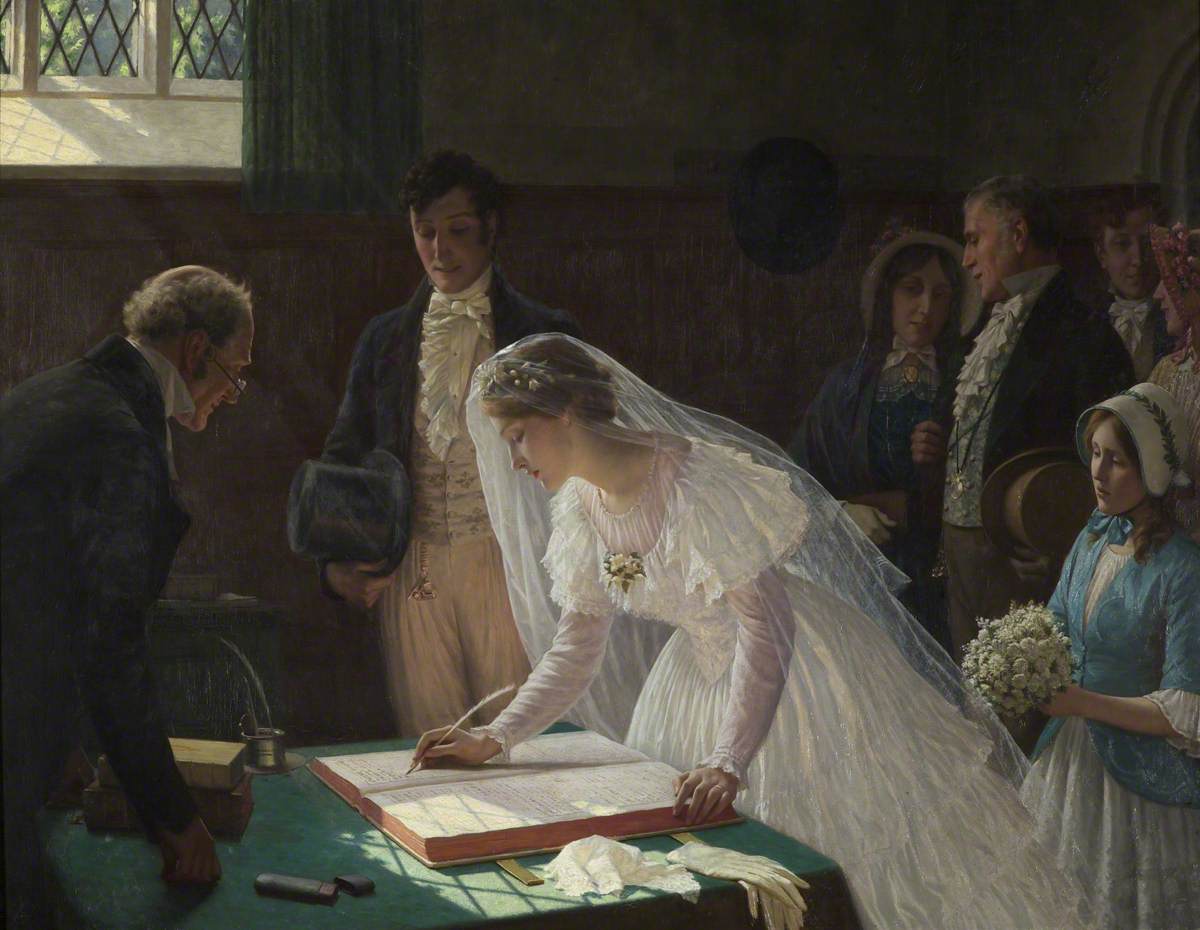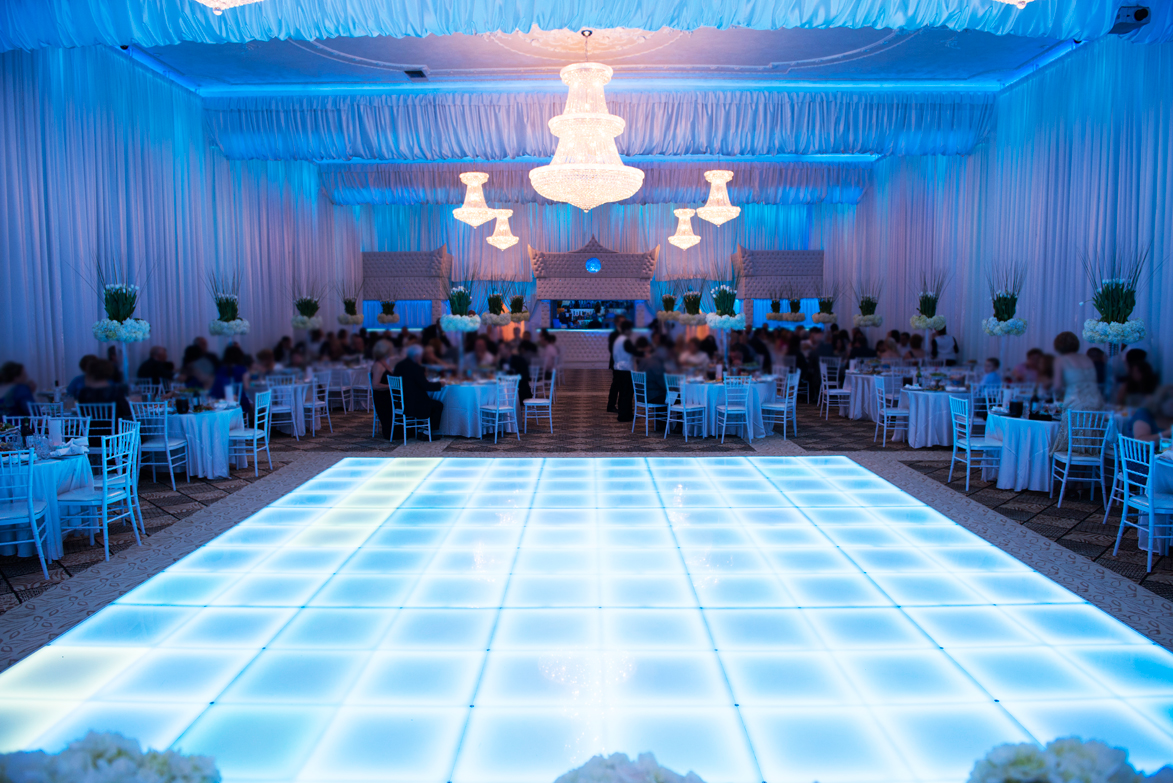|
Wedding
A wedding is a ceremony where two people are united in marriage. Wedding traditions and customs vary greatly between cultures, ethnic groups, religions, countries, and social classes. Most wedding ceremonies involve an exchange of marriage vows by a couple, presentation of a gift (offering, rings, symbolic item, flowers, money, dress), and a public proclamation of marriage by an authority figure or Celebrant (Australia), celebrant. Special wedding garments are often worn, and the ceremony is sometimes followed by a wedding reception. Music, poetry, prayers, or readings from religious texts or literature are also commonly incorporated into the ceremony, as well as Wedding superstitions, superstitious customs. Common elements across cultures Some cultures have adopted the traditional Western custom of the white wedding, in which a bride wears a white wedding dress and veil. This tradition was popularized through the marriage of Queen Victoria. Some say Victoria's choice of ... [...More Info...] [...Related Items...] OR: [Wikipedia] [Google] [Baidu] |
Wedding Tradition
African customs Ethiopia The Wedding procedure starts with the groom's side sending elders (Shimagle) who then request a union between the parties. The elders discuss a dowry (ጧሎሽ) and verify that the intended bride and groom are not relatives by checking their lineage a minimum of seven generations. After a dowry is agreed upon and it has been determined that there is no relationship between the intended bride and groom, the wedding is announced and the families begin preparations for a church/mosque ceremony and a mels(i) ceremony. On the wedding day the groom and groomsmen (ሚዜ) get ready at the groom's house early in the morning and proceed to the bride's parents house to begin the wedding ceremonies. At the bride's parent's house, the bride gets ready and is seated awaiting the groom's arrival. As the groom and his wedding party arrive, the bride's family and friends ceremonially block the entrance to the house. The groomsmen have to either serenade or bribe thei ... [...More Info...] [...Related Items...] OR: [Wikipedia] [Google] [Baidu] |
Wedding Dress
A wedding dress or bridal gown is the dress worn by the bride during a wedding ceremony. The color, style and ceremonial importance of the gown can depend on the religion and culture of the wedding participants. In Western cultures and Anglo-Saxon cultural spheres, the wedding dress is most commonly white, a fashion made popular by Queen Victoria when she married in 1840. In Eastern cultures, brides often choose red to symbolize auspiciousness. Western culture Weddings performed during and immediately following the Middle Ages were often more than just a union between two people. They could be a union between two families, two businesses or even two countries. Many weddings were more a matter of politics than love, particularly among the nobility and the higher social classes. Brides were therefore expected to dress in a manner that cast their families in the most favorable light and befitted their social status, for they were not representing only themselves during the ceremo ... [...More Info...] [...Related Items...] OR: [Wikipedia] [Google] [Baidu] |
Wedding Reception
A wedding reception is a party usually held after the completion of a marriage ceremony as hospitality for those who have attended the wedding, hence the name reception: the couple ''receive'' society, in the form of family and friends, for the first time as a married couple. Hosts provide their choice of food and drink, although a wedding cake is popular. Entertaining guests after a wedding ceremony is traditional in most societies, and can last anywhere from half an hour to many hours or even days. Most wedding receptions are made in the evening for dinner; however, the couple may opt for a luncheon, brunch, or even afternoon tea. Ultimately the married couple chooses the details and location of the reception. In some cultures, separate wedding celebrations are held for the bride's and groom's families. Before receptions – a social event that is structured around a receiving line, and usually held in the afternoon, with only light refreshments – became popular, wedding ... [...More Info...] [...Related Items...] OR: [Wikipedia] [Google] [Baidu] |
Wedding Superstitions
A wedding is a celebratory ceremony where two people are brought together in matrimony. Wedding traditions and customs differ across cultures, countries, religions, and societies in terms of how a marriage is celebrated, but are strongly symbolic, and often have roots in superstitions for what makes a lucky or unlucky marriage. Superstition is often linked to practices involving luck, fate or prophecy, and while many weddings are now more focused on celebratory traditions, many are still practiced, and numerous well-known wedding traditions have roots in superstitions from previous ages. A common example of a superstition involves no one seeing the bride in her wedding dress until the ceremony. By country/religion Asian wedding superstitions China * Traditional Chinese weddings might involve a tea ceremony rather than the Western tradition of exchanging vows. When a bride leaves with the groom, a "Good Luck Woman" – a woman who has been blessed with healthy children, su ... [...More Info...] [...Related Items...] OR: [Wikipedia] [Google] [Baidu] |
Hindu Wedding
A Hindu wedding, also known as Vivaha (Devanagari: विवाह; Kannada script: ವಿವಾಹ; ''Vivaaha'') (), Lagna (लग्न), or Kalyanam (Devanagari: कल्याणम्; Kannada script: ಕಲ್ಯಾಣಮ್; ta, கல்யாணம்), is the traditional wedding ceremony for Hindus. The wedding ceremonies are very colourful, and celebrations may extend for several days. The bride's and groom's home—entrance, doors, wall, floor, roof—are sometimes decorated with colors, flowers, and other decorations.Yee, A. (2008 May 17Sari nights and henna parties ''The Financial Times''. The word ''vivāha'' originated as a sacred union of people as per Vedic traditions, i.e. what many call marriage, but based on cosmic laws and advanced ancient practices. Under Vedic Hindu traditions, marriage is viewed as one of the saṁskāras, which are lifelong commitments of one wife and one husband. In India, marriage has been looked upon as having been designed by the ... [...More Info...] [...Related Items...] OR: [Wikipedia] [Google] [Baidu] |





